What Is A Pool Pump And Why Do You Need One?
The rippling azure of a crystal-clear pool under sunlight conjures images of relaxation and summery bliss. For many home and property owners, a pool isn't just a luxury but a necessity during the humid months. Yet, what lies beneath those shimmering waters often goes unnoticed – the humble pool pump. Understanding the role of the pool pump is not only imperative for smooth pool operation but also for the maintenance of a clean and safe aquatic environment. In this comprehensive dive, we'll unpack the intricacies of pool pumps and why they are a non-negotiable component for any pool owner.
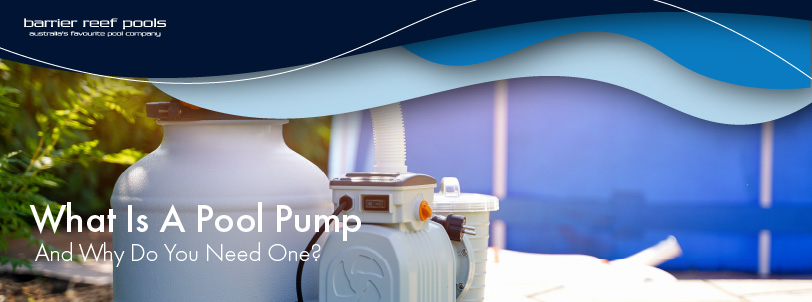
Why Pool Pumps are Essential
The pool pump may seem rather unremarkable, quietly nestled out of view. Yet, its significance is profound, playing a crucial role in various vital facets of pool upkeep. It functions as the central hub of your pool’s circulatory system, ensuring proper water filtration, distribution, and maintenance of chemical balance, all working harmoniously to keep your pool sparkling and inviting for a refreshing swim experience.
Circulation and Filtration
One of the foremost roles of a pool pump is to circulate the water, ensuring a stable flow that prevents stagnation and the accumulation of dirt and debris. This continuous motion drives water through the pool’s filtration system, where impurities are caught and removed, leaving the water pure and safe for swimmers.
Chemical Distribution
Mounted at the entry point of your pool’s filtration system, the pool pump plays a crucial role in the effective distribution of chemicals. This includes the dispersion of chlorine, algaecides, and pH balancers, which are essential for preventing bacterial growth and maintaining water chemistry at optimal levels. By circulating the water through the filtration system, the pump ensures that impurities and debris are captured, keeping your pool clean and safe for swimming. The proper functioning of the pool pump is key to the overall maintenance and health of your pool, making it a vital component of your pool system.
Energy Efficiency
Newer models of pool pumps are meticulously engineered with a focus on energy efficiency, a vital aspect for pool owners who prioritise environmental sustainability. By utilising advanced energy-efficient pumps, not only can operational costs be significantly reduced through decreased electricity consumption, but also a positive impact can be made on the environment with a reduced carbon footprint. This dual benefit makes energy-efficient pool pumps a smart and eco-conscious choice for those looking to enhance operational efficiency while minimising their environmental impact.
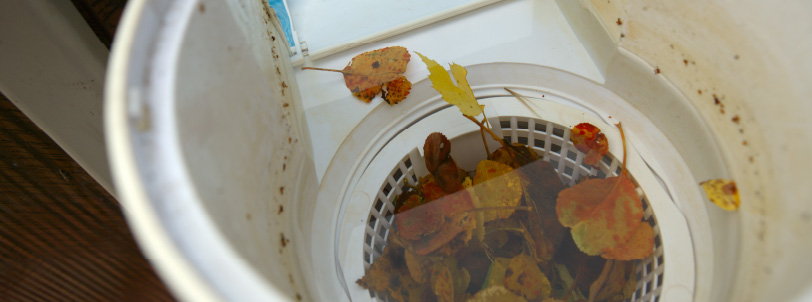
Types of Pool Pumps
Understanding the various types of pool pumps is crucial for pool owners. Each type, such as single-speed, dual-speed, and variable-speed pumps, offers distinct features and benefits tailored to specific pool requirements. By choosing the right pump for your pool, you can ensure optimal performance and energy efficiency, ultimately enhancing your swimming experience.
Single-speed, Dual-speed, Variable-speed
Traditionally, pool pumps were single-speed, meaning that they operated at a fixed, often high rate of energy consumption. However, the advent of dual-speed and variable-speed pumps has revolutionised the pool industry. Dual-speed pumps offer a lower setting, ideal for times when maximum filtration isn’t necessary, while variable-speed models provide multiple speed options, granting owners precise control over their pump’s energy output.
Choosing the right type of pump is essential for matching the pump’s performance with the pool’s needs and can significantly impact both operation and energy costs.
Factors to Consider When Choosing a Pool Pump
Investing in the right pool pump is crucial for maintaining a clean and well-functioning swimming pool. Factors such as the size of your pool, the flow rate needed for proper circulation, energy efficiency ratings, and durability are all key considerations to ensure optimal performance and efficiency over time. By carefully assessing these factors, you can choose a pool pump that not only meets your current needs but also provides long-term benefits for your pool maintenance.
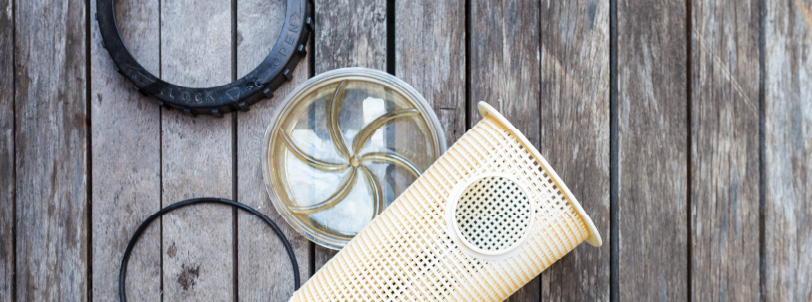
Pool Size and Flow Rate
The dimensions of your pool dictate the required flow rate of your pump. To calculate this, an estimation of your pool’s size and the necessary turnover rate – the frequency at which the pump should circulate the pool’s water – is necessary. A pump with too high or too low a flow rate can lead to ineffective filtration and chemical distribution.
Energy Efficiency
In the modern marketplace, pump manufacturers are increasingly focused on designing pumps that deliver high performance with low energy consumption. Consider the pump’s horsepower rating alongside its energy star rating to gauge efficiency accurately.
Balancing efficiency with the pool’s size and intended use ensures that you acquire a pump that doesn’t just do its job well but does so while lowering your utility bills.
Maintenance Tips for Pool Pumps
To maintain the efficiency and longevity of your pool pump, regular maintenance is essential.
Inspection and Repairs
Leakage or unusual noises can be indicators of a malfunctioning pump. Be proactive and routinely inspect the pump for any wear and tear. Invest in timely repairs to avoid more significant issues down the line, which may be costlier to fix.
Regular Cleaning
Debris can accumulate both inside and around the pump, which may clog the system and reduce performance. Regularly inspect and clean your pump’s baskets, filters, and impeller for any obstructions.
Adhering to a maintenance schedule not only prolongs the life of your pool pump but also ensures that your pool remains a beacon of cleanliness and safe enjoyment for your family and guests.
Conclusion
The role of a pool pump cannot be overstated; it is the engine that powers the various mechanisms and ensures a clean, safe, and inviting pool experience. Making an informed choice when selecting a pump, maintaining it diligently, and understanding how it contributes to energy use are all part of responsible pool ownership.
As a pool owner, acquainting yourself with the intricacies of pool pumps is a journey towards not just operational knowledge, but also a deeper appreciation for the seamless operation of a facility that brings so much joy and relaxation to your life. So, the next time you take a refreshing dip in your pool, remember the unsung hero, the pool pump, which lies at the heart of this idyllic experience.
What Is A Pool Pump And Why Do You Need One?
The rippling azure of a crystal-clear pool under sunlight conjures images of relaxation and summery bliss. For many home and property owners, a pool isn't just a luxury but a necessity during the humid months. Yet, what lies beneath those shimmering waters often goes unnoticed – the humble pool pump. Understanding the role of the pool pump is not only imperative for smooth pool operation but also for the maintenance of a clean and safe aquatic environment. In this comprehensive dive, we'll unpack the intricacies of pool pumps and why they are a non-negotiable component for any pool owner.
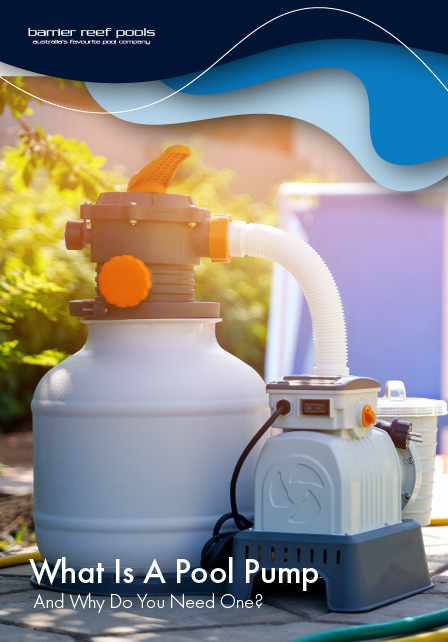
Why Pool Pumps are Essential
The pool pump may seem rather unremarkable, quietly nestled out of view. Yet, its significance is profound, playing a crucial role in various vital facets of pool upkeep. It functions as the central hub of your pool’s circulatory system, ensuring proper water filtration, distribution, and maintenance of chemical balance, all working harmoniously to keep your pool sparkling and inviting for a refreshing swim experience.
Circulation and Filtration
One of the foremost roles of a pool pump is to circulate the water, ensuring a stable flow that prevents stagnation and the accumulation of dirt and debris. This continuous motion drives water through the pool’s filtration system, where impurities are caught and removed, leaving the water pure and safe for swimmers.
Chemical Distribution
Mounted at the entry point of your pool’s filtration system, the pool pump plays a crucial role in the effective distribution of chemicals. This includes the dispersion of chlorine, algaecides, and pH balancers, which are essential for preventing bacterial growth and maintaining water chemistry at optimal levels. By circulating the water through the filtration system, the pump ensures that impurities and debris are captured, keeping your pool clean and safe for swimming. The proper functioning of the pool pump is key to the overall maintenance and health of your pool, making it a vital component of your pool system.
Energy Efficiency
Newer models of pool pumps are meticulously engineered with a focus on energy efficiency, a vital aspect for pool owners who prioritise environmental sustainability. By utilising advanced energy-efficient pumps, not only can operational costs be significantly reduced through decreased electricity consumption, but also a positive impact can be made on the environment with a reduced carbon footprint. This dual benefit makes energy-efficient pool pumps a smart and eco-conscious choice for those looking to enhance operational efficiency while minimising their environmental impact.
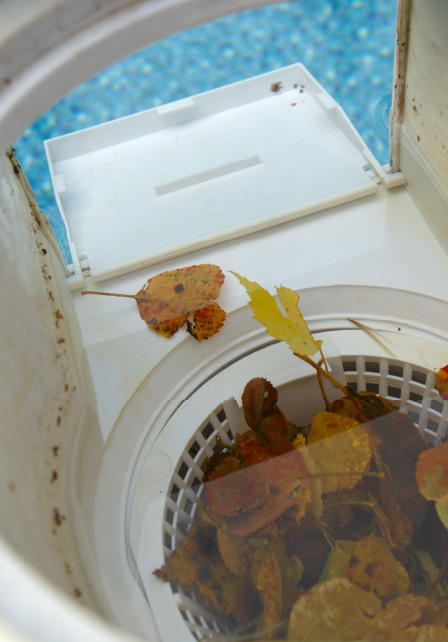
Types of Pool Pumps
Understanding the various types of pool pumps is crucial for pool owners. Each type, such as single-speed, dual-speed, and variable-speed pumps, offers distinct features and benefits tailored to specific pool requirements. By choosing the right pump for your pool, you can ensure optimal performance and energy efficiency, ultimately enhancing your swimming experience.
Single-speed, Dual-speed, Variable-speed
Traditionally, pool pumps were single-speed, meaning that they operated at a fixed, often high rate of energy consumption. However, the advent of dual-speed and variable-speed pumps has revolutionised the pool industry. Dual-speed pumps offer a lower setting, ideal for times when maximum filtration isn’t necessary, while variable-speed models provide multiple speed options, granting owners precise control over their pump’s energy output.
Choosing the right type of pump is essential for matching the pump’s performance with the pool’s needs and can significantly impact both operation and energy costs.
Factors to Consider When Choosing a Pool Pump
Investing in the right pool pump is crucial for maintaining a clean and well-functioning swimming pool. Factors such as the size of your pool, the flow rate needed for proper circulation, energy efficiency ratings, and durability are all key considerations to ensure optimal performance and efficiency over time. By carefully assessing these factors, you can choose a pool pump that not only meets your current needs but also provides long-term benefits for your pool maintenance.
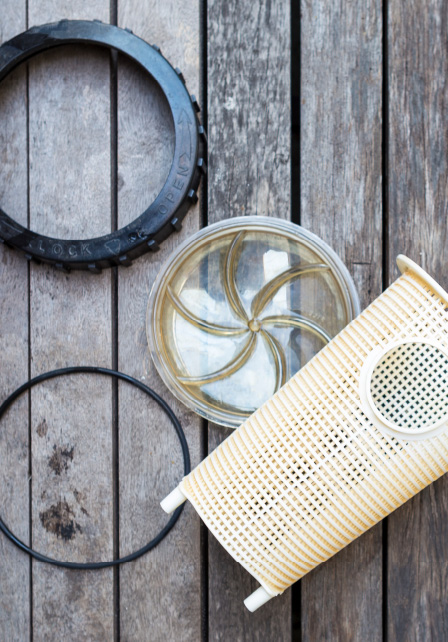
Pool Size and Flow Rate
The dimensions of your pool dictate the required flow rate of your pump. To calculate this, an estimation of your pool’s size and the necessary turnover rate – the frequency at which the pump should circulate the pool’s water – is necessary. A pump with too high or too low a flow rate can lead to ineffective filtration and chemical distribution.
Energy Efficiency
In the modern marketplace, pump manufacturers are increasingly focused on designing pumps that deliver high performance with low energy consumption. Consider the pump’s horsepower rating alongside its energy star rating to gauge efficiency accurately.
Balancing efficiency with the pool’s size and intended use ensures that you acquire a pump that doesn’t just do its job well but does so while lowering your utility bills.
Maintenance Tips for Pool Pumps
To maintain the efficiency and longevity of your pool pump, regular maintenance is essential.
Regular Cleaning
Debris can accumulate both inside and around the pump, which may clog the system and reduce performance. Regularly inspect and clean your pump’s baskets, filters, and impeller for any obstructions.
Inspection and Repairs
Leakage or unusual noises can be indicators of a malfunctioning pump. Be proactive and routinely inspect the pump for any wear and tear. Invest in timely repairs to avoid more significant issues down the line, which may be costlier to fix.
Adhering to a maintenance schedule not only prolongs the life of your pool pump but also ensures that your pool remains a beacon of cleanliness and safe enjoyment for your family and guests.
Conclusion
The role of a pool pump cannot be overstated; it is the engine that powers the various mechanisms and ensures a clean, safe, and inviting pool experience. Making an informed choice when selecting a pump, maintaining it diligently, and understanding how it contributes to energy use are all part of responsible pool ownership.
As a pool owner, acquainting yourself with the intricacies of pool pumps is a journey towards not just operational knowledge, but also a deeper appreciation for the seamless operation of a facility that brings so much joy and relaxation to your life. So, the next time you take a refreshing dip in your pool, remember the unsung hero, the pool pump, which lies at the heart of this idyllic experience.


